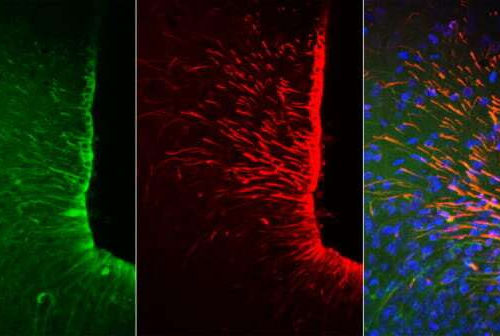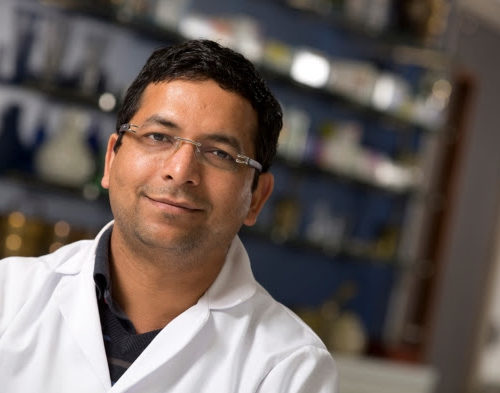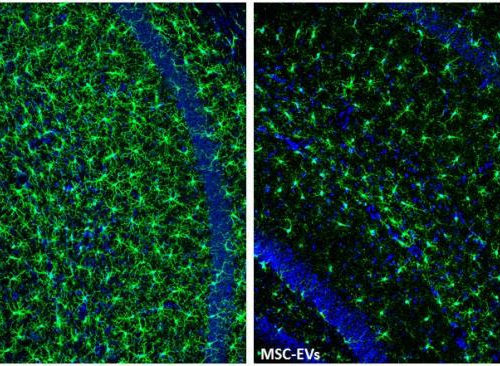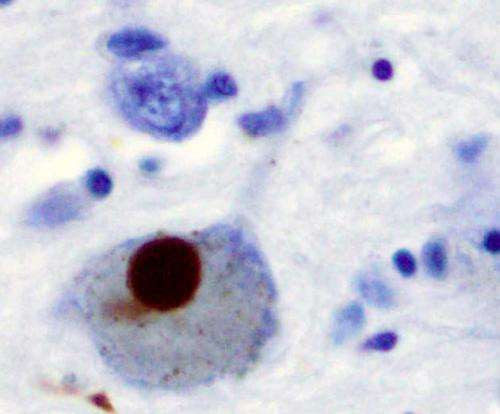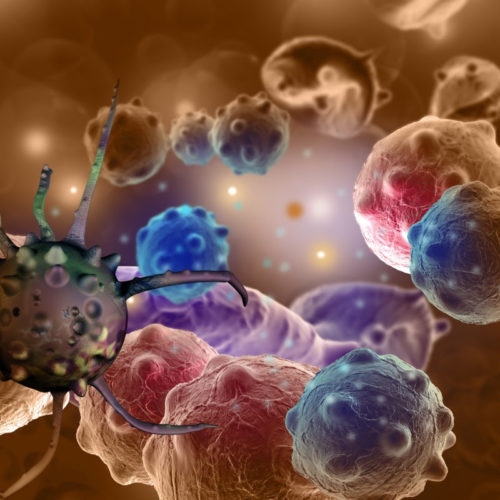Reports show that the mortality rate among men with COVID-19 is higher than women. Marco Mantovani/Getty Images Email Twitter3 Facebook299 LinkedIn Print When it comes to surviving critical cases of COVID-19, it appears that men draw the short straw. Initial reports from China revealed the early evidence of increased male mortality associated with COVID. According...
Tag: <span>Therapeutics</span>
Appetite can be increased by cells in the brain
by University of Warwick Tanycytes are glial cells, which communicate with neurons in the brain to inform it of what we have eaten. Researchers from the School of Life Sciences at the University of Warwick have found when tanycytes are selectively stimulated appetite was increased. It has previously been discovered that tanycytes—cells found in part...
THICKER BLOOD MAY EXPLAIN ODD COVID-19 BLOOD CLOTS
After noticing unusual blood clotting in many patients diagnosed with COVID-19, doctors believe there may be a connection to the thickness of their blood, known as hyperviscosity, with inflammation and clotting. “IT HAS BEEN A MYSTERY WHY SO MANY PATIENTS WITH COVID-19 HAVE HAD ATYPICAL BLOOD CLOTS.” “It has been a mystery why so many...
New killing mechanism discovered in ‘game-changing’ antibiotic
Scientists at the University of Liverpool and University of Utrecht have taken another step forward on their quest to develop a viable drug based on teixobactin – a new class of potent natural antibiotic capable of killing superbugs. Research published in Nature Communications provides fundamental new insights into how teixobactins kill bacteria, including the discovery...
Tracking cancer’s immortality factor
Canadian scientists have achieved a first in the study of telomerase, an essential enzyme implicated in aging and cancer. In today’s edition of the prestigious journal Molecular Cell, scientists from Université de Montréal used advanced microscopy techniques to see single molecules of telomerase in living cells. A flaw in the replication of chromosomes means that...
Haima Therapeutics licenses synthetic platelet technology from CWRU for hemostatic therapy
Haima Therapeutics has executed an exclusive license agreement with Case Western Reserve University to research, develop, and market artificial platelet technologies to treat patients with various bleeding disorders. The core technologies were developed in the laboratory of Professor Anirban Sen Gupta, a pioneering researcher in platelet-inspired technologies in the Department of Biomedical Engineering at the...
Intranasal delivery of MSCs provides hope for treating Alzheimer’s disease
Durham, NC – In the search for a cure for Alzheimer’s disease, mesenchymal stem cells and their derived extracellular vesicles (MSC-EVs) offer much promise, thanks to their protective and anti-inflammatory properties. The results from a new study done on mice, released today in STEM CELLS Translational Medicine, strengthens this idea by showing for the first...
Insight into protein misfolding could open up new approaches to treat Parkinson’s disease
by University of Cambridge Researchers have uncovered a link between the structure of the protein alpha-synuclein and its likelihood to misfold and aggregate. Alpha-synuclein aggregates are the hallmark of neurodegenerative disorders, such as Parkinson’s disease. Their findings, published today in Nature Communications, identify potential new therapeutic targets in the treatment of Parkinson’s disease. The human...
Human growth hormone treatment after ACL injury may prevent loss of muscle strength
ANN ARBOR, Mich. – After experiencing an ACL injury, a common sports injury involving ligaments in the knee, many athletes find they can’t return to play with the same vigor as before their injury. But, a new study, published in The American Journal of Sports Medicine, finds human growth hormone treatment after ACL reconstructive surgery...
Approved malaria drug joins the fight against deadly brain cancer
By Nick Lavars May 26, 2020 As the most aggressive type of brain cancer and one with a very poor survival rate, there is a desperate need for new and improved treatments for glioblastoma. Scientists at Virginia Commonwealth University may have uncovered a powerful new tool in this regard, in the form of an already...


